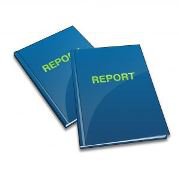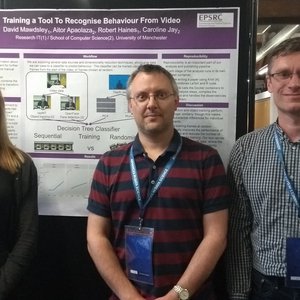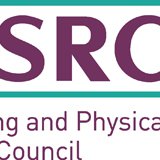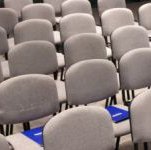Found total of 149 items and showing 12 items on page 11 of 13
Research IT Club October - talks announced


The next Research IT Club will be held on the 25th October and will feature updates from our research infrastructure and software engineering teams. Our two feature presentations will look at “the role of software engineers in reproducible research” and the introduction of new security controls across the university as part of the Cyber Security Program.
To attend the event please register so we know how much coffee to order in!
Research Software Engineering (RSE) Cloud Computing Awards


Applications are now open for the RSE Cloud Computing Awards program, supported by Microsoft. The goal of the program is to create a community bridging researchers, university stakeholders, regional teams, and national services, to better understand how Microsoft Azure can enable better, faster, and more reproducible research.
USA - UK Travel Grants for Research Software Engineers


The first two awards from the EPSRC USA-UK Research Software Engineer Travel fund have just been announced and Martin Turner from Research IT has been fortunate enough to receive one them. The funding aims to encourage greater collaboration between the UK and USA-based Research Software Engineer communities to help with: investigating emerging hardware and the impact on software; building collaboration around a particular science area; developing common community codes; and building links between computational / computer science and mathematics.
Personal Responsibility in the Engineering of Academic Software


Software is often a critical component of scientific research. It can be part of the academic research methods used to produce research results, or it may be the actual academic research result. Software, however, has rarely been considered to be a citable artefact in its own right. With the advent of open-source software, artefact evaluation committees of conferences, and journals that include source code and running systems as part of the published supporting material, it is expected that software will increasingly be recognized as part of the academic process. It is therefore essential that the quality and sustainability of this software is accounted for.
Research Grant Clinic - June


Research IT offers a range of services to UoM researchers such as high performance computing and software consultancy but how do you know if these services are relevant to you and your research? If they are how do you describe them and cost them correctly in your grant proposal?
Come along to the next Research IT Grant Support Clinic on the 22nd of June where researchers and research support staff can discover more about the skills and services that we offer and, importantly, how to include them in grant proposals.
Rapid Analysis of Video Data


Traditionally the first step in interpreting video is to code it into a form that can be analysed systematically. The coding process is currently performed manually, and it can be slow and difficult, and biased by subjectivity. David Mawdsley (Research IT) recently presented a poster at the first “Advances in Data Science” conference explaining how we are helping Dr Caroline Jay’s group develop a way to quickly code human behaviours allowing the rapid analysis of hours of video.
Research IT Club Presentations May 2017


Thank you to everyone who came along to the latest Research IT Club and especially those who took the opportunity to ask questions! The presentations are now available from the links below.
EPSRC Research Software Engineer Fellowships Call


EPSRC has announced a call to support Research Software Engineer (RSE) Fellowships for a period of up to 5 years. The Fellowships are open to exceptional individuals in the software field who demonstrate leadership and have combined expertise in programming and a solid knowledge of the research environment.
State of the Nation report on Research Software Engineers


If you are wondering where the term “Research Software Engineer (RSE)” came from then a new report could help to explain. The first State of the Nation Report for Research Software Engineers provides a history of the RSE campaign and a snapshot of the RSE community as it stands today.
Research IT Grant Support Clinic - May


Research IT offers a range of services to UoM researchers such as high performance computing and software consultancy but how do you know if these services are relevant to you and your research? If they are how do you describe them and cost them correctly in your grant proposal?
The Environmental Impact of your Shopping


Have you ever wondered if your shopping habits could be influenced? Do you buy the same groceries every week? Would extra information allow you to make informed choices when you do your online shop? Research IT helped a group of researchers who were trying to see if they could make consumers change their mind.
Call for Submissions - Research Software Engineers Conference


Following the success of the First Conference of Research Software Engineers, the Second Conference will be held at the Museum of Science and Industry in Manchester on the 7th-8th September 2017. The event will feature a lively, international mix of over 200 attendees and the call has now been issued for talks, posters, workshops and tutorials.
